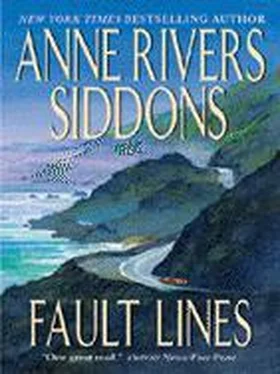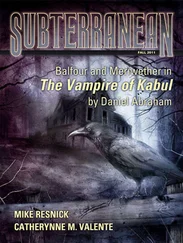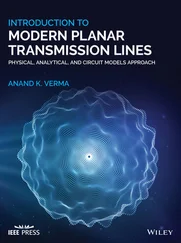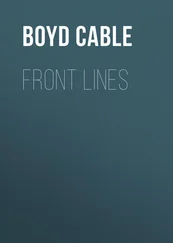Anne Siddons - Fault Lines
Здесь есть возможность читать онлайн «Anne Siddons - Fault Lines» весь текст электронной книги совершенно бесплатно (целиком полную версию без сокращений). В некоторых случаях можно слушать аудио, скачать через торрент в формате fb2 и присутствует краткое содержание. Жанр: Старинная литература, на английском языке. Описание произведения, (предисловие) а так же отзывы посетителей доступны на портале библиотеки ЛибКат.
- Название:Fault Lines
- Автор:
- Жанр:
- Год:неизвестен
- ISBN:нет данных
- Рейтинг книги:3 / 5. Голосов: 1
-
Избранное:Добавить в избранное
- Отзывы:
-
Ваша оценка:
- 60
- 1
- 2
- 3
- 4
- 5
Fault Lines: краткое содержание, описание и аннотация
Предлагаем к чтению аннотацию, описание, краткое содержание или предисловие (зависит от того, что написал сам автор книги «Fault Lines»). Если вы не нашли необходимую информацию о книге — напишите в комментариях, мы постараемся отыскать её.
Fault Lines — читать онлайн бесплатно полную книгу (весь текст) целиком
Ниже представлен текст книги, разбитый по страницам. Система сохранения места последней прочитанной страницы, позволяет с удобством читать онлайн бесплатно книгу «Fault Lines», без необходимости каждый раз заново искать на чём Вы остановились. Поставьте закладку, и сможете в любой момент перейти на страницу, на которой закончили чтение.
Интервал:
Закладка:
For my part, I was glad to have the prospect of neighbors, even the kind who would live with Palladian windows and fake crenellations, and their vanguards, the rats, never appalled and disgusted me as they did Pom. I even began, secretly and with not a little shame, to root for them in the ongoing war that they could not win.
Finally Pom settled on a fleet of small wire humane traps baited with unpoisoned birdseed, that he scattered all over the house except in Mommee’s regular orbit. They worked well. We caught rats in droves. He fastened ropes to the traps and simply took them and their writhing cargo down to the river and lowered them. When the traps stopped bobbing and bucking, he hauled them up and dumped out his drowned victims and brought the traps back and set them out again that night. But these dawn executions cut into his working time, and he soon turned the task over to me. I protested, but he held firm.
“Come on, Merritt, surely you can lower a rat trap in the river,” he said. “It only takes a minute or two. Just dump ’em in the weeds afterwards. I don’t want to have to do it at midnight. You can take the dogs for a run while you’re at it. I really don’t ask you to do much of anything extra.”
He didn’t. Mommee was the only exception, and sanctioned time away from her was hardly an imposition. Shamed, I agreed to take rat duty. The very first day I did it the solution struck me. By now, I felt a special bond with the rats. I thought that the good souls who made up the Underground Railroad might have felt something of the same affection for the fleeing slaves who passed through their venues. It did occur to me, early on, that the rats I freed might be simply circling back into the house, but that did not bother me as much as the thought of more poison or neck-breaking traps. It wasn’t as if we didn’t have room for them.
On this day the dogs larruped ahead of me, running in crazy circles in the tall grass and broom sedge that bordered the path, their noses scouring the earth and their fringed tails waving. The sun bounced off their sleek coats. The drone of insects and the buzzing of cicadas and the soft purling of the river as it ran over the small rapids off our bank were the only sounds. Even the rats fell silent. It was very hot and still and seemed no time at all.
I reached the bank of the river and knelt and opened the traps. The two rats blinked and wriggled their snouts for a moment, but they did not move.
“Haul ass, bubbas,” I whispered, and shook the cages, and they streaked for freedom in the weeds, as fast in their clumsiness as small alligators. I looked after them until the underbrush had closed around them, and then I dumped the traps into the river and pulled them out so that they would be wet when I went back and stretched out on the bank in the shade and closed my eyes. I heard the dogs come bounding past me, heard the twin choonks as they went into the river, but I did not open my eyes. I lay still, listening to the cicadas. The heat pressed down on me like a fist. It struck me that I had never heard July flies at the beginning of June before.
It had been a strange winter and spring. Christmas Day had seen an afternoon temperature of seventy-eight, and by February first the daffodils and crocuses were in full bloom. By March everything was lush and green, and then a series of late ice storms blasted much of the green black. April, usually as wet and green as the bottom of a lake, was so dry that grass seared and new blooms withered. May, usually balmy and perfect, was cold again. And now, in early June, there had been a string of days so heat-stifled and stale that it might be late August. But no summer storms swept in from the west to relieve us.
Nationally things were no better. Everything seemed out of kilter. A spring and summer of record-breaking heat was forecast for the West, while in the East neither the National Weather Service nor the Farmers’ Almanac nor the weather wackos foresaw an end to the blistering drought. Some said it was El Niño, some the widening hole in the ozone layer, some a Muslim conspiracy to bring the industrial West to its knees. Everybody had a theory. A renegade climatologist in Mono Lake, California, was predicting catastrophic earthquakes all over the country before fall. Since he was a pupil of the gentleman who had predicted the disaster on the New Madrid fault years before, which had not occurred, the media did not give him much credibility, but accorded him endless ink nonetheless. Even those of us who had tired of the litany of doom the strange, unsettled weather called forth felt a slight, ceaseless visceral unease. The hairs on my arms and at the base of my scalp crawled often, for no reason at all.
“Don’t you feel it?” I had said to Pom at breakfast just the weekend before, holding up my goose-bumped arms for his inspection.
“Nope. But you’re a walking barometer. Why don’t you go swimming? You haven’t used the pool in ages.”
“Mommee always wants to go in when I do,” I said. “I’m afraid she’ll get in over her head and I won’t be able to get her out.”
“Let her swim with you, it might calm her,” he said, making notes on an edge of the newspaper. I saw that he was adding up a column of figures. “Take Ina in with you. You could surely handle her together.”
“Can you see Ina in a bathing suit, towing Mommee around our pool?” I said, beginning to laugh. Ina was built like an interior lineman, wore faultlessly tailored blazers and slacks and Doc Martens, and was active in NOW. She referred to herself as a personal household assistant. I didn’t care what she called herself as long as she stayed; she was worth every cent of the scalp-crawling salary we paid her. She could have tossed Mommee across the room if she had wanted to, but she did not like dealing with her. Mommee needed, she insisted, her own attendant, a practical nurse or some other substantial companion. I agreed with her, but Pom did not.
“I will not have a stranger changing my mother’s diapers,” he said, and that was that. Diaper duty fell to me. I didn’t really mind. Disposables were not difficult to deal with, and Mommee was usually docile with me. It was implicit in the contract, after all.
“You let Ina get away with murder,” he said, not looking up. “For what we pay her she ought to do a water ballet every afternoon, if you want her to.”
“Yeah, right,” I said. He kissed me on the top of my head and went off to the clinic, still staring at the figures on the scrap of newsprint.
Now I lay on my back with my arm over my eyes, seeing wheeling black spots against dark red and feeling sweat gather at my hairline and thinking about earthquakes. I thought about Laura, too. The familiar dull worry began, deep inside me; the old pain bloomed softly along its pathway of scar tissue. Irritation followed. It was just like Laura to locate herself squarely on top of the San Andreas fault.
Laura lived just outside Palm Springs now, in what looked to be a kind of latter-day Anasazi dwelling carved out of the base of the great jagged mountains that swept abruptly into the desert sky. It looked, in the photographs she had sent when she moved there, strange and ancient and enchanting. It was a condo, and was, she wrote, so expensive that she was sure Sonny shit whenever he wrote out her alimony check. Sonny was her ex-husband, a minor filmmaker and major coke addict. He was her third ex. The other two had been in “the industry,” as Laura called it, but in more major positions than Sonny.
Laura seemed to be marrying in the same descending order that her career followed. She was a photographer’s stylist now, and in her spare time made what she called earth adornments, jewelry made from desert stones and horn and shell, and wrote New Age poetry. In her photos she was still, at thirty-eight, as blindingly beautiful to me as she had been at eighteen, but it was the tragedy of her life that the camera did not find her so.
Читать дальшеИнтервал:
Закладка:
Похожие книги на «Fault Lines»
Представляем Вашему вниманию похожие книги на «Fault Lines» списком для выбора. Мы отобрали схожую по названию и смыслу литературу в надежде предоставить читателям больше вариантов отыскать новые, интересные, ещё непрочитанные произведения.
Обсуждение, отзывы о книге «Fault Lines» и просто собственные мнения читателей. Оставьте ваши комментарии, напишите, что Вы думаете о произведении, его смысле или главных героях. Укажите что конкретно понравилось, а что нет, и почему Вы так считаете.












